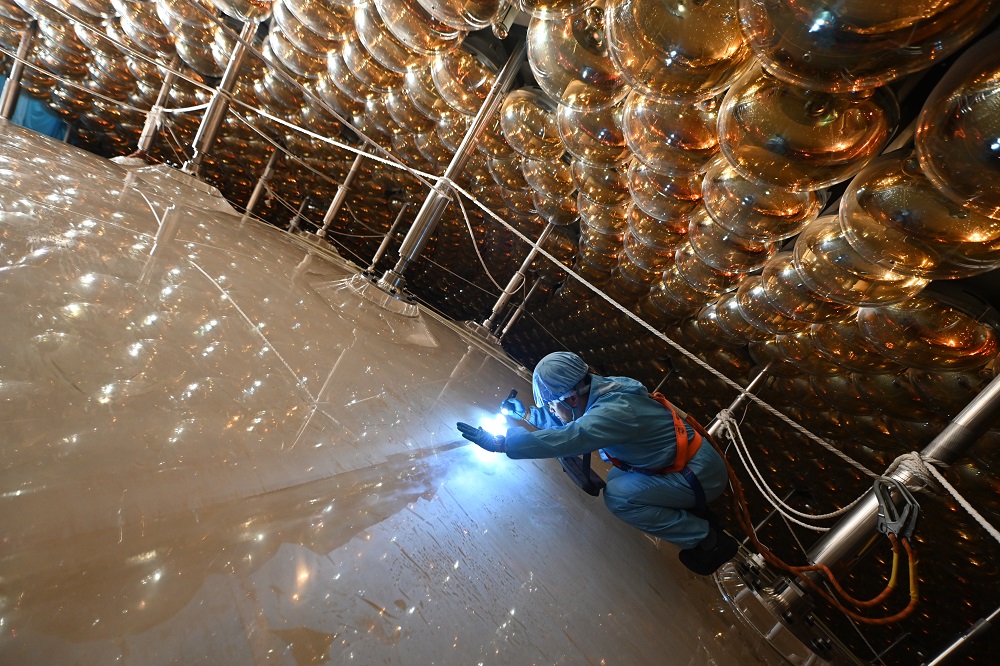World's largest liquid scintillator neutrino detector, JUNO, begins operation in Guangdong


"The completion and operation of the JUNO detector mark a historic milestone, as it is the first major scientific facility of its scale and precision dedicated to neutrino research worldwide. JUNO will enable us to answer fundamental questions about the nature of matter and the universe," said Wang Yifang, an academician at the Chinese Academy of Sciences.
Compared to the best international level, the volume of JUNO's liquid scintillator has increased by 20 times. In addition, its determination of the mass ordering is independent of matter effects in the Earth and largely free of parameter degeneracies, enabling a threefold increase in photoelectron yield and achieving an unprecedented energy resolution of 3 percent.
Li Yufeng, a researcher at the Institute of High Energy Physics of CAS, said that JUNO is designed to determine the mass ordering of the three neutrino types, whose total mass is less than 0.12 electron volt, or about one-millionth of an electron's mass. The nearly massless nature of neutrinos makes them challenging to study, yet understanding them may help explain fundamental mysteries of atomic composition and cosmic evolution.
























